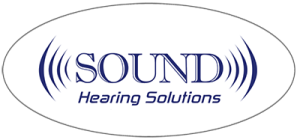Though it isn’t the only one, perhaps the most harmful stigma associated with hearing loss is that it is an “old” person’s problem. While it is true that in many cases hearing loss is associated with aging, that is only part of the story.
Hearing Loss Affects All Ages
According to a 2012 study from the National Health Interview Survey, 15% of adults aged 18 or older had “some trouble [hearing] without a hearing aid.” If you consider that there are about 245 million people aged 18 or over in the United States, that means nearly 37 million U.S. adults of all ages are experiencing some degree of hearing loss. In fact, the Better Hearing Institute has reported that 65% of people with hearing loss are under the age of 65. Furthermore, a Johns Hopkins study found that almost one fifth of Americans 12 and older suffer from a hearing loss severe enough to interfere with their ability to communicate. Clearly, hearing loss does not discriminate by age.
I would also like to take a moment to consider what we mean when we say someone is “old”? Are we suggesting that a person is defined simply by the date on their birth certificate? As far as I am concerned, “old” is a state of mind. I’ve been a practicing audiologist for over a decade, and as you may suspect, many of my patients have been in their seventies, eighties, and beyond. I am continually impressed and inspired by the robust and active lives most of my patients live, no matter what the date on their birth certificate says. They are smart and healthy people living life to the fullest, spending time with family and friends and accomplishing lifelong goals along the way. I take significant satisfaction in the fact that by helping them hear their best, I am able to play some role in assisting them in maintaining a high quality of life.
The term “old” is also often associated with hearing instrument technology as well. That simply isn’t the case. Modern digital hearing instruments are more efficient than ever, and they continue to get better with each passing year. They are sleek and sophisticated pieces of technology, and when they are combined with proper diagnostics and fitting by an audiologist, they can have a tremendous impact on an individual’s life. In an age of smart phones, Bluetooth earpieces, and Fitbits, there should be no stigma associated with using modern technology to benefit and improve our daily lives. In fact, while those examples can be nice to have, a hearing instrument is often an essential part of a hearing impaired individual’s quality of living.
No matter what your age, coping with hearing loss takes commitment and courage. It can take time. When you’re ready for help, Sound Hearing Solutions is here for you.
Sources:
National Health Interview Survey
Johns Hopkins Medicine – One in Five Americans Has Hearing Loss
Better Hearing Institute – Prevalence of Hearing Loss
